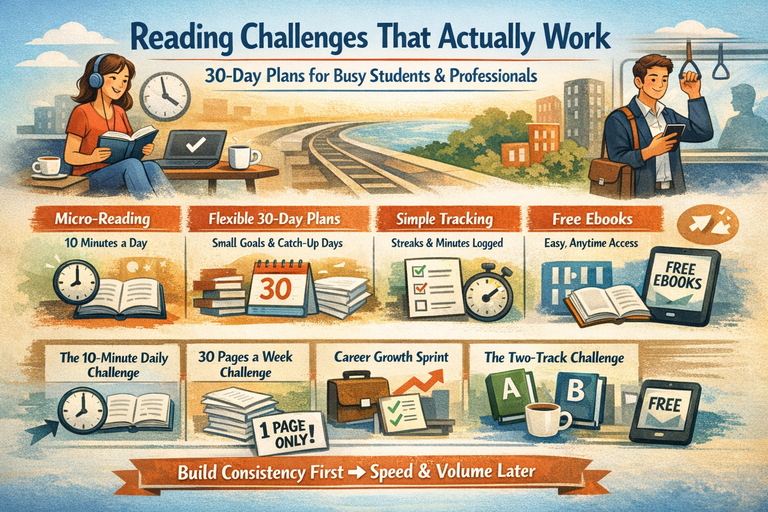How Small Businesses Can Compete With Industry Giants
In today’s marketplace, small businesses often find themselves up against massive corporations with global reach, huge budgets, and established brand recognition. Competing with industry giants may seem daunting, but small businesses have unique advantages that allow them to not only survive but thrive in competitive industries.
The key lies in leveraging agility, creativity, and personalized service — qualities that large corporations often struggle to maintain. This article explores strategies that small businesses can use to level the playing field and carve out a strong market presence.
Understanding the Challenge
Large corporations benefit from economies of scale, deep financial resources, global distribution channels, and extensive marketing campaigns. Small businesses, on the other hand, face limitations in budget, manpower, and brand awareness.
However, competition is not always about size. It’s about strategy, adaptability, and the ability to deliver unique value to customers. By focusing on strengths that industry giants can’t easily replicate, small businesses can build loyal customer bases and long-term sustainability.
Focus on Niche Markets
One of the most powerful strategies for small businesses is specializing in a niche. Instead of trying to compete head-to-head with corporations on broad offerings, small businesses can narrow their focus to serve a specific audience exceptionally well.
Examples include:
-
A boutique coffee shop emphasizing organic, locally sourced beans.
-
A consulting firm targeting small nonprofits instead of large corporations.
-
A clothing brand focusing exclusively on eco-friendly fabrics.
Niche markets allow small businesses to stand out, build expertise, and attract loyal customers who value specialization over mass production.
Deliver Personalized Customer Experiences
Big companies often struggle to treat customers as individuals. Small businesses, however, have the advantage of building personal connections and offering tailored service.
Strategies include:
-
Remembering customer preferences and using them in future interactions.
-
Offering loyalty programs that reward repeat business.
-
Going the extra mile with handwritten thank-you notes or personalized emails.
These small touches create emotional bonds, leading to stronger loyalty than any corporate discount campaign could achieve.
Leverage Agility and Flexibility
Large corporations are often slowed down by layers of bureaucracy. Small businesses can pivot quickly, adopt new technologies faster, and respond immediately to customer feedback.
For example:
-
If a trend emerges on social media, a small business can adjust its product line or marketing strategy within days.
-
If customers suggest improvements, changes can be implemented almost instantly.
This speed and flexibility give small businesses an edge in adapting to changing market conditions.
Build a Strong Brand Identity
Competing with industry giants doesn’t mean copying them. Instead, small businesses should focus on building authentic brand identities that reflect their values and resonate with their audiences.
Ways to strengthen brand identity:
-
Share your origin story — people love to support businesses with a relatable journey.
-
Highlight values like sustainability, community support, or craftsmanship.
-
Maintain consistent visuals and tone across all platforms.
A clear, authentic brand identity can inspire customer loyalty and differentiate your business from faceless corporations.
Use Digital Marketing Wisely
Thanks to digital tools, small businesses no longer need massive advertising budgets to reach customers. Social media, content marketing, and email campaigns allow small businesses to compete at a fraction of the cost.
Key approaches:
-
Social Media Marketing: Build genuine engagement through storytelling, behind-the-scenes content, and customer interaction.
-
Content Marketing: Publish blogs, videos, or podcasts that establish your expertise in your niche.
-
Email Campaigns: Nurture customer relationships with personalized offers and updates.
The internet levels the playing field, giving small businesses direct access to their audiences.
Collaborate Instead of Compete
Partnerships can give small businesses an advantage by expanding their reach and resources.
Examples include:
-
Collaborating with complementary businesses to create bundle deals.
-
Partnering with local influencers to boost credibility and visibility.
-
Joining forces with other small businesses for community events or co-branded campaigns.
Collaboration allows businesses to share costs, access new audiences, and strengthen their competitive position.
Focus on Innovation
While large corporations often dominate with established products, they can be slow to innovate due to rigid processes. Small businesses can use creativity and experimentation to develop unique offerings.
Innovation doesn’t always mean inventing something new — it can be about improving existing products, offering a better customer experience, or finding new ways to deliver value.
For instance:
-
A bakery offering custom flavor combinations that larger chains don’t provide.
-
A service business using mobile apps to streamline scheduling and communication.
Small innovations can make a big difference in attracting customers seeking something fresh.
Prioritize Community Engagement
Small businesses often thrive by embedding themselves in their local communities. Unlike global corporations, they can create meaningful, face-to-face connections with customers.
Ways to engage:
-
Sponsoring local events or sports teams.
-
Hosting workshops or classes.
-
Participating in charity initiatives.
When customers see that a business supports their community, they are more likely to support it in return.
Deliver Value Beyond Price
It’s nearly impossible for small businesses to compete with giants on price alone. Instead, the focus should be on delivering value in other ways:
-
Higher quality products.
-
Exceptional customer service.
-
Convenience and customization.
When customers feel they are receiving greater value, price becomes less of a deciding factor.
Embrace Technology and Tools
Modern technology allows small businesses to compete more effectively than ever. Affordable tools for accounting, customer relationship management (CRM), inventory management, and project collaboration streamline operations and improve efficiency.
AI-powered tools and automation also allow small businesses to scale tasks like customer service, marketing, and analytics — once reserved for corporations with big IT departments.
Attract and Retain Talent Through Culture
Industry giants may offer higher salaries, but small businesses can attract top talent by offering something equally valuable — a strong, supportive company culture.
-
Providing flexibility in work arrangements.
-
Encouraging creativity and input from all employees.
-
Offering growth opportunities and recognition.
Employees who feel valued and engaged are more likely to stay, creating stability and innovation in the workforce.
Monitor Competitors Without Mimicking Them
Understanding what industry giants are doing is important, but small businesses shouldn’t try to copy them directly. Instead, monitor competitors to identify gaps in the market, areas of customer dissatisfaction, or opportunities they overlook.
By filling these gaps, small businesses can create unique offerings that large corporations fail to provide.
Case Studies of Small Business Success
-
Warby Parker: Started as a small eyewear startup competing with major brands. By offering stylish, affordable glasses online with home try-on options, they disrupted the industry.
-
Innocent Drinks (UK): Competed with beverage giants by focusing on natural ingredients and quirky branding, building a loyal following.
-
Local restaurants and cafés: Many survive alongside fast-food giants by offering authentic recipes, personalized service, and community-focused dining experiences.
These examples show that competing with giants is not only possible but achievable with the right strategy.
Final Thoughts
Small businesses may not have the budgets, resources, or reach of industry giants, but they do have qualities that large corporations struggle to match — agility, authenticity, personalization, and community focus.
By embracing niche markets, building strong relationships, leveraging digital tools, and focusing on innovation, small businesses can carve out meaningful space in competitive industries.
The secret is not to compete on the giants’ terms but to change the game entirely. Instead of being “smaller versions” of big companies, small businesses should embrace their unique strengths.
In today’s fast-changing business landscape, those strengths often turn out to be the deciding factor for success.








